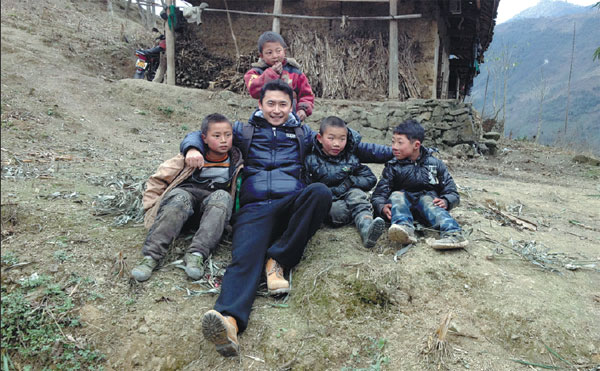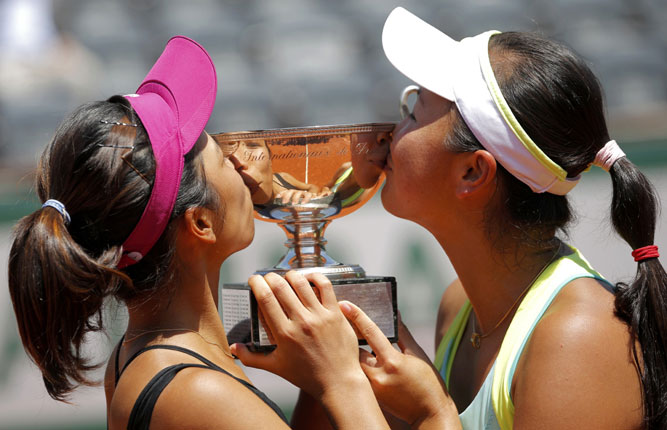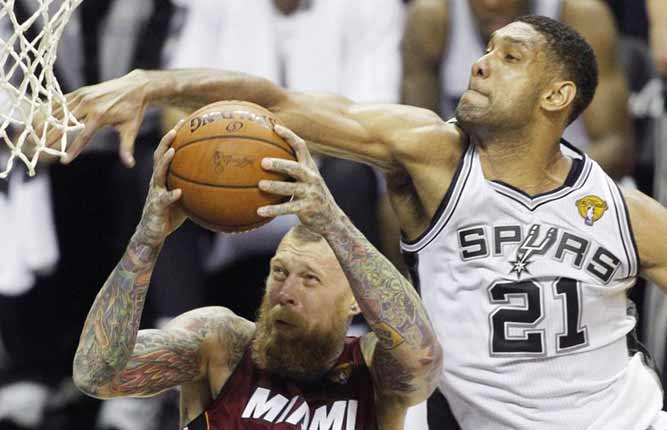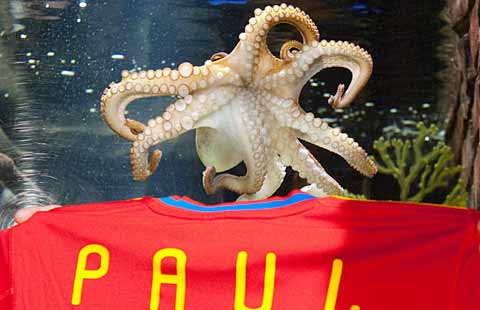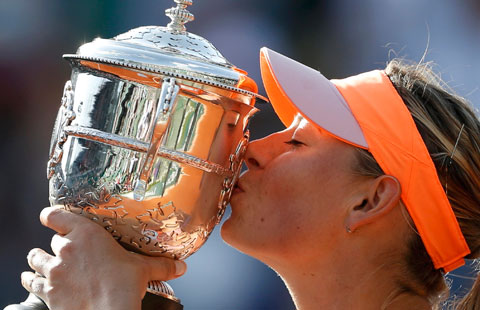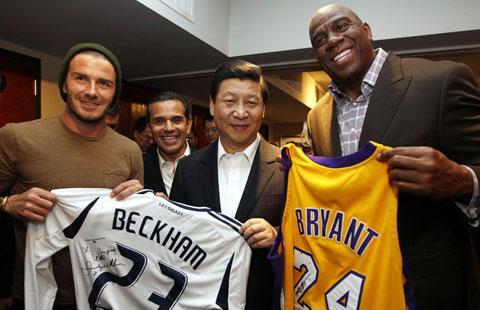A whole new game for generous Gao
By Luis Liu (China Daily) Updated: 2014-05-24 07:29
|
Gao says he has dedicated "all he's got" to his charity work to help the underprivileged in the mountainous west of China. [Provided to China Daily] |
A turbulent career
|
After your experience in the foreign leagues, what do you think of Chinese soccer? I feel the Chinese media only focuses on the players who play in the major leagues. When I was in Europe, I noticed in the second or third-class leagues there were many Japanese and Korean players in youth teams and even in the first teams. It's not a coincidence that players like Shinji Kagawa are playing in those major leagues, because Japanese soccer already had a complete system for player training. I think Chinese soccer has two ways out: training the youth and giving the young players chances to play in Europe, even if in the second or third-class leagues. Which teams will you focus on in the coming World Cup? I like to watch Japan and South Korea and see how they play. Many Japanese and Korean players are individually special and they merge into the team well, that's what we should learn from them. When do you think the Chinese soccer dream will come true? Some say, optimistically, that we will be in the final eight of the World Cup in 30 years, some say we will never reach the World Cup again. If we work according to a strict set of rules, it is even possible we could be in the next World Cup. But if we continue to sway back and forth, we will never have the chance. If someday our children do not need to make a choice between soccer and school, there will be hope for us. |
"I preferred to stay in a pure environment in which I could really enjoy soccer," Gao said, obviously harboring some unpleasant memories about Chinese soccer.
At the start of this century, he was one of the most talented Chinese players. In the last league game of the 1999 season, he single-handedly killed the championship dream of China's "Kaiserslautern", Liaoning, with a stunning goal. The whole nation applauded him, but he was never fully embraced by his team or the soccer fraternity.
He said he was isolated by the team's "old guys" for his straightforward attitude. They tried to supress him rather than help him grow.
"Maybe it is the deep-rooted Chinese tradition - that seniority must be respected," he said, "but on the pitch one should have the attitude that no matter who you are, I will defeat you. Even if Ronaldo stood in front of me I would try to dribble past him."
During one training session, young Gao passed a long ball to an older player. The kick was too strong and the player yelled at him, telling him to slow down and pay closer attention next time.
"But when that older player did the same thing he shouted: Hey! Why don't you run faster?" Gao said. "That is when I knew that this environment was not for me."
What disappointed him most was being dropped from China's 2002 World Cup squad list. After making the national team's provisional list, the then Beijing Guo'an coaches left him on the bench for the rest of the season, which led to his being dropped from the final squad, according to Bora Milutinovic, the then head coach of Chinese national team, in an interview before the World Cup finals.
If he had made that team, his whole career could have taken a vastly different turn.
H was told by some to "do as the Chinese do": treat the coaches to a meal or have a drink with them and he would definitely be in the starting lineup.
But Gao despised that view.
"I know it's part of the business culture in China, but soccer players should be judged by their competence," Gao said. "We can fool ourselves, but at the end of the day, we will also be a laughing stock in the soccer world."
During his final two years at Beijing Guo'an, he was one of the fans' most beloved players but, at the same time, the coach's (Shen Xiangfu) least favorite. Each time, Guo'an came back from a deficit, Gao was the first name the fans would chant. But the louder the chorus, the less chance he would get to step onto the pitch.
"He (the coach) wanted me to play fully defensively, but the team needed to attack," Gao said. "Playing the coach's style would earn me more game bonuses as the money is distributed by the coach, but I would rather play for the fans."
He still loves soccer; just not the game in China. He seldom watches Chinese soccer games. Instead, he enjoys his life with family and the children in the villages.
Gao admits he felt a lot of self-pity during his career but, "doing charity work is a way I have found to fulfill myself".
luisliu@chinadailyhk.com
